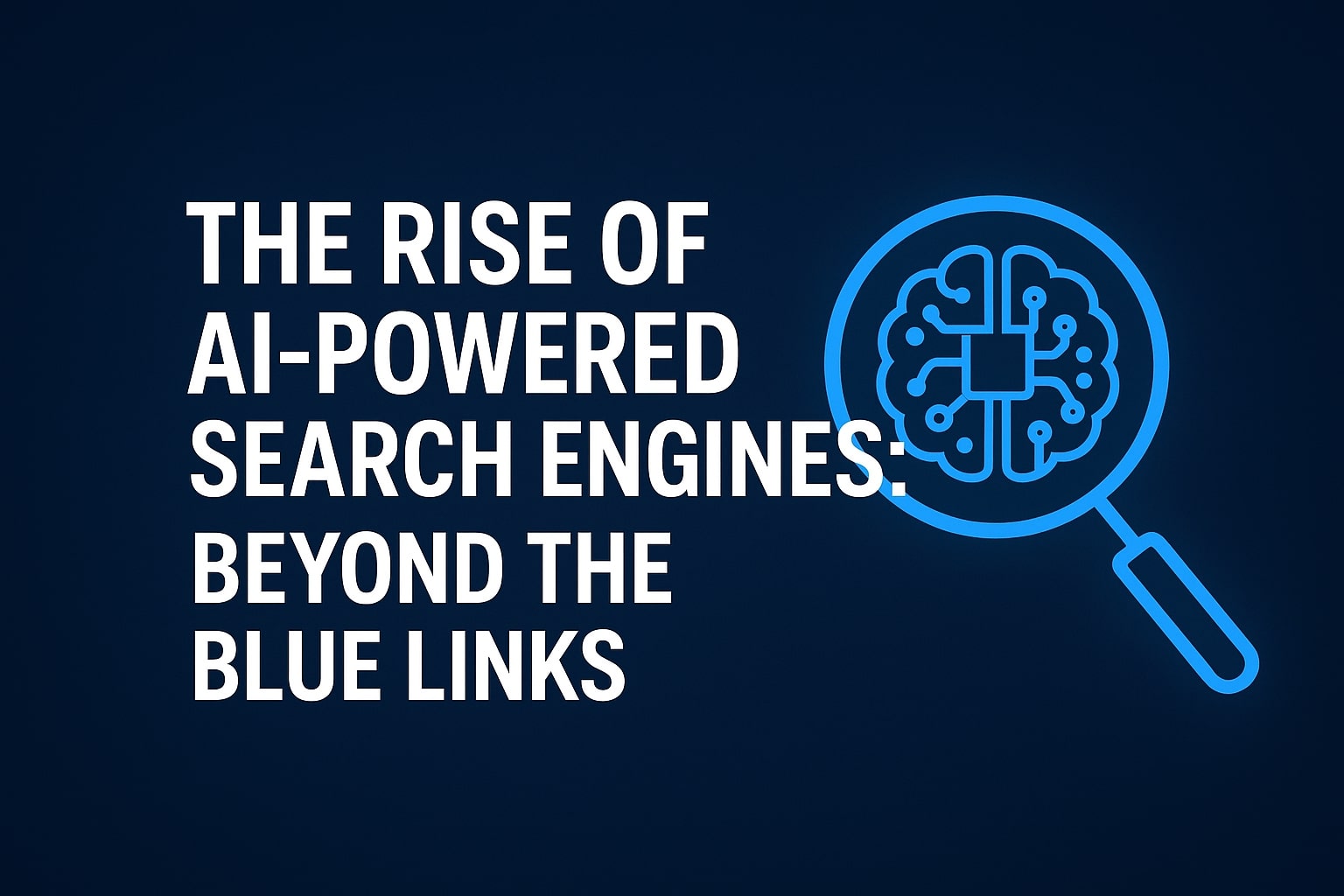AI-powered search engines are transforming how we find information online. The traditional page of ten blue links is giving way to a conversational, intuitive, and answer-focused experience. This change represents a fundamental shift in search technology and content strategy.
What is an AI-Powered Search Engine?
An AI-powered search engine uses generative AI and large language models (LLMs) to provide direct answers instead of a simple list of links. These engines understand user intent, context, and nuance, allowing them to synthesize information from multiple sources efficiently.

Key Players Leading the AI Search Revolution
- Google’s Search Generative Experience (SGE): Integrates generative AI into search results, providing AI-powered snapshots for instant answers.
- Microsoft Bing (with ChatGPT): Offers conversational search modes for complex queries by leveraging OpenAI technology.
- Perplexity AI: A fully AI-native search engine delivering cited, conversational answers without traditional SERP clutter.
- You.com: Allows customizable, source-driven search experiences with AI assistance.
The End of “Search” and the Rise of “Answer”
| Traditional Search | AI-Powered Search |
|---|---|
| Returns a list of links | Provides a synthesized answer |
| Requires user clicks to explore | Often fulfills intent on the results page (zero-click search) |
| Matches keywords | Understands intent and context |
| Best for simple queries | Excels at complex, research-based questions |
| Websites compete for ranking | Websites compete to be cited as the source |
Implications for Users, Creators, and Businesses
- For Users: Search becomes faster, more conversational, and efficient. However, it raises questions about information diversity and potential bias in AI-generated answers.
- For Content Creators & Websites: Traffic strategies must evolve. The goal shifts from ranking #1 to being cited as a source within AI answers, using Generative Engine Optimization (GEO).
- For Businesses: Brand visibility changes. AI answers may summarize product comparisons or highlight features, so companies must ensure information is accurate and authoritative.
The rise of AI-powered search represents the most significant change in information retrieval since Google’s debut. Adapting to this new landscape is no longer optional—it is essential for anyone publishing online.
Learn how to adapt: Explore practical strategies in our article on How ChatGPT and Gemini Are Changing SEO Forever.
